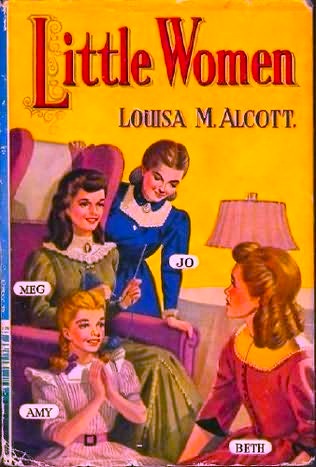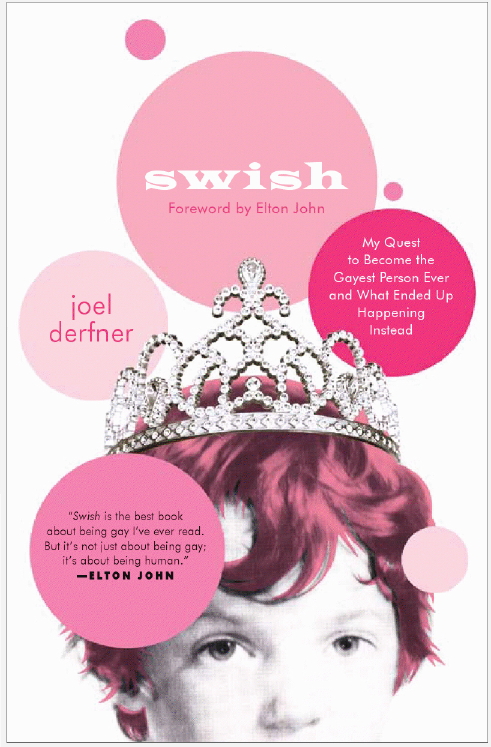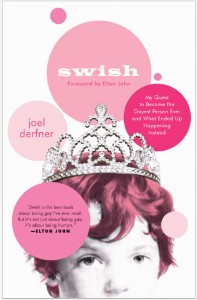Okay, I’ll admit it: the first part of that title is a tad cumbersome. I got tired of typing COUNTDOWN TO A CONTEST, PART {fill in Roman numeral here}. The contest deadline to which I was counting down has passed (how do people feel their entry process went, by the way?), and besides, much of what I’m discussing in this part of the series would apply — stop me if you have heard this before — equally well to refining contest entries and submissions to agencies.
I know, I know. Some day, I’m going to have to come up with more descriptive titles for my posts.
Let’s get back to courting the comic muse. Or, more accurately, to our discussion of how aspiring writers often think they are courting her, without actually winning her favor. Or so we must surmise, from the fact that such a high proportion of attempted humor leaves both Mehitabel, everybody’s favorite fictional veteran contest judge, and her niece Millicent, intrepid screener of manuscripts at a theoretical agency, with distinctly untickled funny bones. Further evidence might be gleaned from the startling frequency with which entries and submissions elicit spontaneous, uninhibited laughter with lines the writer did not think would pass anywhere near those aforementioned funny bones.
Ooh, nicely executed spit take, everybody. “Wha–?” would-be humorists across the English-speaking world cry, their eyes bugging out of their heads like cartoon characters (oh, you thought you were the first writer to use that simile?). “How can something intended to be unfunny provoke that response? I can understand a joke’s falling flat, but I hate the idea that Mehitabel and/or Millicent might be chuckling over my Great American Tragedy.”
Good question, eye-buggers. But didn’t the previous question answer it?
If the previous paragraph did not make you giggle, well, you are either delightfully innocent (and thus might want to avert your eyes from the next paragraph, in order to remain so), not a very detail-oriented reader (as Mehitabel and Millicent invariably are), or, perish the thought, the joke I just made was not very funny. Given the exceptionally high probability that all three are true, allow me to compound the mistake of having cracked not particularly wise by explaining why it should have been funny, as well as illustrative of my ongoing point. To render the narrative error even more representative of what M & M tend to see on the page, allow me to explain my failed joke as pedantically as possible.
You see, the would-be humorists asked how a piece of writing could provoke laughter if its author did think it was funny. I then said it was a good question — something I’m pointing out because I don’t have sufficient faith in the reader to believe s/he can remember what s/he has just read — but then turned that compliment on its head by addressing the imaginary questioners with a double entendre. That, for those of you new to the term, is when the comic value of a phrase arises from its meaning one thing literally, but also being subject to a sexualized interpretation. In this instance, eye-buggers could refer to those whose eyes protrude unusually far between their lashes, but it also — and herein lies the yuck factor — could imply that those same imaginary questioners are in the habit of performing a physically improbable sex act upon eyeballs in general. Get it? Get it? Compounding the humor: the sentence that followed raised the possibility that the phrasing in the previous sentence might have been unintentional — and thus likely to spark unintended laughter at the entry or submission stage. Har de har har har!
Hands up, those of you who thought my bad joke was funnier before I explained it. Keep those hands up if you found yourself wishing by a couple of lines into the subsequent explanation that I’d just accept that the joke hadn’t worked and move on.
Welcome to Mehitabel and Millicent’s world. They’re constantly treated to unfunny, marginally funny, and might-have-been-funny-after-a-couple-of-rewrites humor attempts. They are also, for their sins, frequently forced to read painful attempts to render an unamusing quip funny in retrospect. Over-explanation is one popular means — and, as we have just seen, it seldom works. Equally common:
Or having a character laugh in order to alert the reader that what’s just appeared on the page was intended to be humorous:
As the head bagger stomped away, Herman pictured a large brown bag descending upon him, scooping him up. Now trapped at the bottom, Ambrose would be helpless as a giant hand flung boxes of cereal and canned goods upon him, perhaps topped by a carton of eggs. He laughed at the mental image.
This, I am sorry to tell you, would cause Mehitabel to roll her bloodshot eyes. “Thanks prompting me to laugh,” she snorts, “because I couldn’t possibly have told that you meant this to be funny otherwise. I see you have also helpfully let me in on the secret that pictured referred to a mental image. Otherwise, I might have thought that the narrative had suddenly shifted from gritty slice-of-life fiction into magical realism.”
Let that be a lesson, would-be humorists: if a bit isn’t funny on the page, having a character find it amusing won’t make it more so. Also, as Mehitabel has just so kindly demonstrated for us, since readers cannot hear tone, sarcasm often does not come across well on the page. From which we may derive a subsidiary lesson: just because something generates a laugh when you say it out loud does not mean it will necessarily be similarly guffaw-inducing on the page.
Why did I put that in bold, you ask? Millicent and Mehitabel requested it; they’re tired of reading manuscripts out loud to try to figure out what on earth Herman thought was so darned funny.
Then, too, professional readers as a group tend not to like being told how to react to writing, period. Mehitabel has every right to feel irritated at being told that she should find what she has just read humorous. Self-review tends not to play well on the page, even if it is very subtle.
Oh, you don’t think what Herman’s creator did was self-review? M & M would regard it that way. They would also see the following fruitless authorial effort as reaction-solicitation. Any guesses why?
“The bookstore is closed for the night,” Gemma snapped, gesturing to the CLOSED sign on the door. “What are you two still doing here?”
“Oh, we’re just browsing,” Angelina said airily.
Bonnie laughed. “Yeah, we’re looking for a first edition of Martin Chuzzlewit.”
Gemma looked puzzled. “Why would you need to be wearing ski masks for that?”
If you leapt to your feet, crying, “Bonnie’s laughter is intended to order Mehitabel to laugh, too,” you deserve a gold start for the day. It doesn’t render Angelina’s joke any funnier, does it? Since M & M do not, as a rule, enjoy being told how to evaluate the writing in front of them, they would have been more likely to find the quip amusing if it had appeared like so. While we’re at it, let’s excise those other professional reader-irkers, concept redundancy and having a character vaguely point to something in order to let the reader know it’s there.
Gemma fixed the closer one with her flashlight. “The bookstore is closed for the night. What are you two still doing here?”
“Oh, we’re just browsing,” Angelina said airily, smiling through her ski mask.
Bonnie aimed her rifle just to the right of Gemma’s head. “Yeah, we’re looking for a first edition of Martin Chuzzlewit.”
“Oh, why didn’t you say so right away?” Gemma felt under the cash register for her favorite throwing knife. “We’re always happy to move some Dickens.”
Better, isn’t it? It’s funnier because the narrative trusts the reader’s intelligence more. As opposed to, say, the ubiquitous practice of just telling the reader point-blank that something is funny:
Barbara flung her banana peel on the ground. Her snarky coworker did not see it, trod upon it, and slipped. It was hilarious.
In case I’m being too subtle here: very, very few contest entries are genuinely funny. Oh, many of them try to be, and some attempts at amusing actually would be chuckle-worthy if spoken out loud, but humor is a capricious mistress. In order to work on the page, how a writer chooses to frame the funny is every bit as important as the joke itself.
Yes, really. You may have written the best one-liner since Richard Pryor accidentally set himself on fire, but if it’s not set up correctly, it’s going to fall flat. And that, my friends, is going to come as a huge disappointment to a humor-loving Mehitabel or Millicent.
Why, you ask? A funny entry, or even a funny joke in an otherwise serious entry, feels like a gift to your garden-variety professional reader. A deliberately-provoked laugh from a judge can result in the reward of many presentation points, and often additional points in the voice category as well.
Notice that I specified a deliberately-provoked laugh. An unintentional laugh, what moviemakers call a bad laugh because it springs forth from the audience when the filmmakers do not want it to occur, will cost a contest entry points. And it should: a bad laugh can knock the reader right out of the scene.
We’ve all burst into bad laughter at movies, right? My personal favorite cropped up in the most recent remake of LITTLE WOMEN. It’s quite a good trick, too: provoking a bad laugh in a scene that’s not only arguably one of the best-known in children’s literature, as well as one in which the filmmakers remained very faithful to the original text, can’t have been easy.
I’m about to show you the moment in question, but first, let’s take a gander at how Louisa May Alcott presented it to her readers. The March girls have just learned that their father, a chaplain in a Civil War regiment, is dangerously ill. Their mother, not unnaturally, wishes to travel across many states to nurse him back to health, but the trip will be very expensive. Everybody’s favorite little woman, Jo the tomboy, is frantic to help. After having disappeared for most of the day, she returns home with a wad of cash, and her family, equally unnaturally, wants to know whence it came.
…she came walking in with a very queer expression of countenance, for there was a mixture of fun and fear, satisfaction and regret, in it, which puzzled the family as much as did the roll of bills she laid before her mother, saying, with a choke in her voice, “That’s my contribution toward making father comfortable and bringing him home!”
“My dear, where did you get it? Twenty-five dollars! Jo, I hope you haven’t done anything rash?”
“No, it’s mine honestly; I didn’t beg, borrow, or steal it. I earned it, and I don’t think you’ll blame me, for I only sold what was my own.”
As she spoke, Jo took off her bonnet, and a general outcry arose, for all her abundant hair was cut short.
“Your hair! Your beautiful hair!” “Oh, Jo, how could you? Your one beauty.” “My dear girl, there was no need of this.” “She doesn’t look like my Jo any more, but I love her dearly for it!”
As everyone exclaimed, and Beth hugged the cropped head tenderly, Jo assumed an indifferent air, which did not deceive anyone a particle, and said, rumpling up the brown bush, and trying to look as if she liked it, “It doesn’t affect the fate of the nation, so don’t wail, Beth.”
Now, Mehitabel and Millicent might well quibble over whether expression of countenance is redundant (technically, it is) or the unidentified speakers, or the unfortunate choice to demonstrate simultaneous speech by tossing aside the one speaker per dialogue paragraph rule. I also cherish the hope that you are all shaking your heads over Aunt Louisa’s regrettable affection for run-on sentences.
But there’s nothing to provoke a bad laugh here, right? It’s a sweet, evocative YA moment: the teenage heroine can’t stand to feel helpless, so she chooses to make a personal sacrifice in order to help her family. That’s a good plot twist. And if Amy (we assume) telling her that she’s now ugly hurt her feelings — “Your one beauty!” is a remarkably nasty thing to say, but she has a point: Jo’s effectively rendered herself unmarriageable for the next year or two — that’s good relationship development. And if she cries about it later that night, that’s good character development.
Here’s that moment again, as it appeared in the film. Note how the focus of the scene has shifted, doubtless as a reflection of the fact that cutting one’s hair was not nearly as shocking to moviegoers in 1994 as it would have been to readers in 1868. My apologies about the commercial at the beginning; it was the only version I could find.
See the problem? As in most filmed versions of LITTLE WOMEN, the young lady playing Jo — here, the inestimable Winona Ryder — is physically the most attractive of the bunch. Not to fault her portrayal of Jo, but Ms. Ryder arguably possessed at that point in her career the kind of face that artists over the centuries have willingly mortgaged their souls in order to depict with anything that approached tolerable accuracy.
So, predictably enough, at “Your one beauty!” the theatre positively rocked with mirth — and so much so that the next few exchanges were completely inaudible. Thus what was one of the dramatic high points of the book was transformed into an occasion for bad laughter.
And yet, amazingly, the script chose to feature that particular bad laugh TWICE: once as live action, and once as a voice-over flashback. When I saw the film, the second time engendered widespread chuckling, as moviegoers had their own little flashbacks about how completely ridiculous that particular moment had been. Good times were had by all.
Just once, I would like to see a version of LITTLE WOMEN where the casting reflected the book. Jo March was plain (in the novel, Meg was the pretty one); her hair actually was her only point of physical beauty. Her sacrifice in cutting it off in order to sell it, therefore, was significantly greater than if she had been otherwise gorgeous. It also, in my opinion, made it substantially easier to identify with her. Jo’s not a fantasy: she’s a real girl, with real problems.
Which were not merely a reflection of Louisa May Alcott’s real problems, incidentally, as readers (and reviewers) have historically assumed. It’s a surprising misconception, given that she wrote about her own wartime experiences so extensively: Louisa was the one that went off to war, not her father; she served a nurse in a Union hospital.
Oh, and those fantastic stories all of the filmed versions of LITTLE WOMEN (and, to a lesser extent, the text) lead us to believe the author considered bad, harmful writing? Alcott apparently actually preferred them to her children’s writing. She wrote many pretty good romantic thrillers — and, like Jo, she supported her family with them. She even sent her sister May (the prototype for Amy) to art school with the proceeds.
Why, yes, that is a digression, now that you mention it. I just get so sick of the automatic presumption that anything a woman writes must necessarily be autobiographical. In Mary Wollstonecraft Shelley’s later life, people apparently asked her all the time who she knew that had managed to bring a corpse back to life. Because it’s not as though a woman who had lost all but one of her children before the age of 5 could have imagined FRANKENSTEIN, right? It’s not as though she were the daughter of two famous novelists or anything.
But I digress. We were talking about comedy, not tragedy.
The question of how real life translates to the page is not irrelevant to humor, however. It can be genuinely difficult for a writer to tell what does and does not come across as funny on his own printed page, especially if the scene in question bears some relation to the author’s life. So if you write comedy, or even want to ascertain that a single quip in a manuscript you are planning to submit is funny, it’s a serious strategic mistake to have Mehitabel or Millicent be the first human being besides yourself to read it.
I heard that gasp — the Jo March fantasy of writing in secret, then triumphantly announcing to incredulous kith and kin that one is published, is almost as common as semi-autobiographical first novels. (With apologies to Madame Shelley.) But if you are trying to be funny, good feedback — especially the kind of impartial feedback you might get from someone who does not happen to love you — is crucial.
Why especially? Well, what is funny in real life is often not amusing on the page, at least not to someone who was not privy to the actual event. There’s a reason, after all, that “You had to be there, I guess,” is so commonly uttered by anecdotalists the world over: real-life funny often arises from mishaps, actions out of character, or events whose comic juxtapositions would be entirely lost upon a bystander who is not already intimately familiar with the players and their respective situations.
Thus the desirability of soliciting first readers who have not, say, given birth to you, held your hand why you were crying over a break-up, walked down the aisle of any sacred edifice with you while either of you was wearing white…or actually was present for any occasion you depict in a manuscript. Or heard you talk about those events second-hand. They harbor preconceived notions that color their reading. That makes it awfully hard for them to judge either the event or the writing by what’s on the page alone.
By definition, a contest judge (or, for that matter, any professional reader to whom you might hand an excerpt from a larger work) is a bystander with no prior associations with the situation described. That tends to render them both less likely to find writing funny and more likely to succumb to bad laughter.
Which is why, I suspect, so many aspiring writers try to make up for that impartiality by over-selling the humor — or by trying to justify it afterward. But let’s face it, nothing kills a joke faster on paper than the narrative’s scurrying to provide an explanation of why it’s funny after the action or bon mot has already passed under the reader’s eyes. To cite a fairly popular species of this particular misguided effort:
“Why, Monique, you’ve grown so thin!” Antonia exclaimed. “Have you found a monumentally successful new diet, or have you merely been deathly ill?”
It was both an attempt at humor and a sincere question. Yes, people often do lose weight when they suffer from a major illness. But in this time period — although, obviously, not today — people often spoke about weight loss as though it were a magic trick, a secret the successful dieter was sworn never to reveal.
Monique steadied herself on the banister. “Ill, you’ll be delighted to hear.”
Pretty clunky, isn’t it? The subsequent explanation sucks the life out of what could have been a mildly funny speech, had it been left alone. It also brings the energy of the scene — and the tone of the exchange — to a screeching halt for lines on end. Besides, if it were actually crucial to the quip that the reader know the information conveyed in that second paragraph (and I don’t think it is here), wouldn’t the text be far more likely to elicit a spontaneous laugh if the reader knew about it before Antonia said it?
Many, many writers combat this problem by including guffawing onlookers as the sort of laugh track we saw in action at the top of this post: whenever a joke appears in the dialogue, the reader is told that someone nearby laughs in response. Yes, one sees this tactic used in movies and on TV all the time — sitcoms film before live audiences or use laugh tracks for a reason — but it seldom translates well to the page.
I sense some of you still don’t believe me. Take a gander, please, at another ubiquitous type of attempt to engender hilarity.
“Hi, Mac,” the bartender said. “We haven’t seen you for a while.”
Mac flashed a brilliant smile, twirling one of his guns. “I’ve been busy. You know, with the ladies.”
Everyone within earshot burst into delighted laughter, slapping their thighs and jostling one another. One patron even fell off his barstool.
“Oh, Mac,” the can-can girl with the heart of gold purred, sidling up to him, “you’re so funny.”
No, lady, he isn’t — or at least, the writer hasn’t shown him being so. The humor may well lie in his tone, or Mac may have funny teeth, but the reader is left to fill in that blank for herself. Rather than investing the creativity and elbow grease in coming up with something funny for Mac to say, the writer here has indulged in a lazy narrative trick.
To an experienced professional reader, this shortcut detracts from the humor of the scene, rather than adds to it; the bigger the onlookers’ reaction, the less funny it seems. and not merely because the Greek chorus of laughter typically does not make the joke seem funnier. To a judge, agent, or editor who has been around the literary block a few times, the onlooker’s guffaw is a flag that the author has some significant doubts about whether the joke is actually funny.
Yes, really. It’s frequently a marker of discomfort, a peek behind the scenes into the writer’s mind, distracting from the story at hand. And once the reader suspects that the writer isn’t amused, it’s only a small step to the reader’s not being amused, either.
Before anyone asks: no, you cannot construct a joke so funny that it obviates all chance of this reaction. People who laugh at their own jokes — which is how this tactic comes across on the page, right? — are seldom as amusing as people who allow their audience to decide whether what they are saying is funny or not.
You can lead a judge to funny, but you can’t make her laugh. Humor is highly subjective.
That last bit may seem self-evident, but think about it with respect to contest judging: the things that make you (and/or your nearest and dearest) chortle with glee may not be a contest judge’s proverbial cup of tea. Just as it’s never wise to assume that those passing judgment on your writing share your sex, sexual preference, political beliefs, etc., it’s not a good idea to proceed on the assumption that they will share your sense of humor.
Attempting humor is riskier than writers tend to believe. Yes, pulling off a good joke is likely to win you disproportionate points for voice — as I said, a truly amusing narrative voice, or even a stellar one-liner, is awfully welcome toward the end of a long day’s reading ultra-serious prose — but just like Olympic gymnasts or high divers who attempt a super-difficult maneuver, the chances of failure are high.
Those of you that just clutched your stomachs know where I’m going with this, I take it: attempting to be funny and missing the mark will typically cost a manuscript more than being devoid of humor. It’s not an uncommon instant-rejection reason, if Millicent stumbles across it within the first couple of pages of a submission. And if a contest entry tries to be funny and fails — especially if the dead-on-arrival joke is in the exposition, rather than the dialogue — most Mehitabels will fault the voice, dismissing it (sometimes unfairly) as not being fully developed enough to have a sense of its impact upon the reader.
Please take that risk with caution — and run the results past an impartial reader or two to ascertain every single one of those jokes will fly. It usually doesn’t take more than a couple of defunct ducks in a manuscript to move it into the not-for-us pile. If you’re not absolutely positive that it’s funny, it should go, pronto.
While I’m on the subject of purely subjective criteria, I’d like to talk about a little something that I like to call the Ta da! factor. It’s hard to define precisely, it’s when a manuscript exudes the sort of mercurial charisma that Elinor Glyn (author of that Edwardian scandal, the romance THREE WEEKS) dubbed It when it occurs in human beings. (Thus Clara Bow, the It Girl, an Elinor Glyn discovery. She also dug up a minor charmer named Rudolf Valentino.)
As Madame Glyn argued, we may not be able to define what It is, but many of us seem to drool over those who have It, when we encounter them in real life. But just telling a reader that is not going to make anyone drool.
Like It, the Ta da! factor makes a manuscript shine, practically demanding that the judge give the entry high marks. In fact — although you are not hearing this from me — a healthy dose of the Ta da! factor might even prompt a judge to fudge a little in the other categories, so as to assure the entry a point total that will launch it into the finalist round.
To achieve the Ta da! factor — well, if I could tell you that, I would chuck the blogging business entirely and establish myself as the world’s most expensive writing guru, wouldn’t I? I do know that mere professionalism is not enough. Yes, all of the technical aspects of the work need to be right, as well as the execution. The writing style needs to be strong and distinct, and it helps a lot if the story is compelling.
Beyond that, it’s a little hard to say how precisely the Ta da! factor gives a manuscript its sheen, just as it’s difficult to pin down just what makes a great first line of a book so great. Perhaps it’s rhythm, and a certain facility for telling detail.
But most of us who love literature know it when we see it, don’t we? Here’s a definite example of the Ta da! factor in action:
I am always drawn back to places where I have lived, the houses and their neighborhoods. For instance, there is a brownstone in the East Seventies where, during the early years of the war, I had my first New York apartment. It was one room crowded with attic furniture, a sofa and four chairs upholstered in that itchy, particular red velvet that one associates with hot days on a train.
That’s the opening of BREAKFAST AT TIFFANY’S, Truman Capote’s masterpiece — which, speaking of odd casting, somebody really ought to make into a movie someday; the Audrey Hepburn version bears only a passing resemblance to it. (The original novella concerns a friendship between a straight woman and gay man in their late teens; the movie is about a love story between a straight man and a woman in, if you look at George Peppard charitably, their late thirties. Oh, and the endings are quite different.)
But just look at the use of language here. You could sing this opening; it’s positively bursting with the Ta da! factor.
Perhaps, too, a certain sense of showmanship is required. Bask in this one:
He was a very good-looking young man indeed, shaped to be annoyed. His voice was intimate as the rustle of sheets, and he kissed easily. There was no tallying the gifts of Charvet handkerchiefs, art moderne ash-trays, monogrammed dressing-gowns, gold key-chains, and cigarette-cases of thin wood, inlaid with views of Parisian comfort stations, that were sent him by ladies too quickly confident, and were paid for with the money of unwitting husbands, which is acceptable any place in the world.
That, my friends, is the opening to Dorothy Parker’s short story DUSK BEFORE FIREWORKS — and let me tell you, if a short story like that fell onto my desk as a contest judge, I would not only shower it with the highest possible marks (yes, even though I do not agree with all of Ms. Parker’s punctuation choices in this excerpt); I would nag the category chair unmercifully about pushing it into the finalist round.
Not only that: I would go to the awards ceremony, cheer if it won, and make a point of meeting the author. I might even introduce the author to my agent. Because, my friends, it exudes the aura of the Ta da! factor as distinctly as a bowl of excellent clam chowder exudes aroma.
I mention this, not to cow you with examples of writing by extremely talented writers, but to fill you with hope, in the midst of this long discourse on all the technical ways you can gain or lose points in the contest judging process. Ultimately, talent does supersede almost every other consideration, as long as the work is professionally presented.
This is not to say that you should not go to great lengths to avoid making the point-costing mistakes I have pointed out over the course of this series — you should, because genuinely talented writers’ work is knocked out of competition (and into agents’ rejection piles) all the time for technical reasons.
When talent is properly presented, though, the results are magical.
“One of the miracles of talent,” Mme. de Sta?l tells us, “is the ability to knock your readers out of their own egoism.” (Another favorite writer of mine; every woman who writes should read her brilliant novel CORINNE at some point. She wrote it in 1807, but apart from the travelogue sections, it’s still fresh as piping-hot cinnamon rolls today.) The Ta da! factor does just that, grabs the reader’s attention and simply insists upon this book’s being read, right now.
Under the sway of all of the publishing fads continually buffeting us, it’s all too easy for writers to forget what power really good writing has. Publishing fads, like fashions in beauty, come and go. Talent doesn’t.
Just as so many of the actors held up as exemplars of beauty now would not have been considered especially attractive in, say, the Italian Renaissance, or even a hundred years ago, I believe that many of the books published today will not be considered essential reading a hundred years from now. But the work of some authors — Truman Capote, Dorothy Parker, Mme. de Sta?l, to name just a few — has something about it that elevates it above the passing fad, just as there are some actors who, it is perfectly obvious to us all, would have been considered absolutely lovely in any period of human history.
“Oh, Jo! Your one beauty!” notwithstanding.
See how right I was earlier in this post? If I hadn’t set that up, it would have fallen completely flat. Indeed, to a reader who had not read the first half of this post, the last paragraph would merely have been confusing.
The lengths to which I will go to make a point, eh?
I was serious about the Ta da! factor, though. Keep your chins up, my friends, through all the hard work of perfecting your manuscripts and contest entries; you’re toiling in a noble vineyard. Real talent is not, after all, necessarily measured in the short term.
Just ask Aunt Louisa; she’d been writing — yes, and publishing across a broad array of genres — for years before she hit the big time. Keep up the good work!





